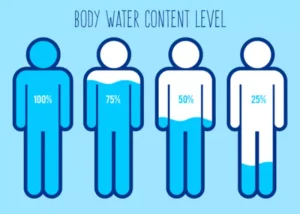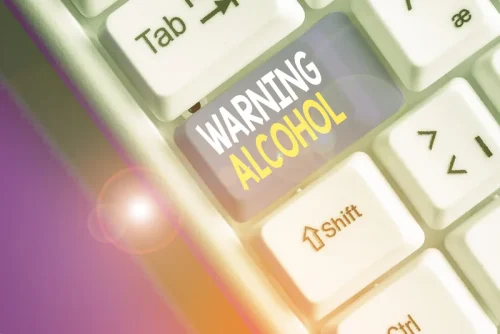Why Are Alcoholics So Mean To The Ones They Love?

These programs usually last 5-7 days on average and commonly use medications to manage difficult physical and emotional withdrawal symptoms. It’s important to remember that intermittent explosive disorder (IED) is a mental health condition. As with all mental health conditions, seeking help as soon as symptoms appear can help decrease the disruptions to your life. Mental health professionals can offer treatment plans to help you manage your thoughts and behaviors. Even in less extreme cases, alcoholic rage can threaten one’s relationships, careers, safety, and more.
Counseling and Therapy
Other potential interventions involve modulating serotonin levels to improve emotional regulation and mitigate impulsive behavior. Advancements in the science and treatment of AUD are steadily increasing, providing hope for those affected by this devastating disorder. Recent studies have shown a connection between alcohol-induced rage syndrome and factors like neuroinflammation and the serotonin 2b receptor gene. Neuroinflammation plays a significant role in the development of alcohol use disorder (AUD) by aggravating cognitive function decline and emotional disturbances. Researchers have also found a link between variations in the serotonin 2b receptor gene and increased impulsivity, which can lead to aggressive behavior in individuals with AUD.
What It Looks and Feels Like
It’s important to note that these symptoms can differ and represent variables in severity and duration depending on the individual and the extent of alcohol abuse. Seeking professional help is crucial to address the underlying issues and facilitate the journey to recovery and healthier coping mechanisms. One study found that chronic alcohol use decreases the function in the prefrontal cortex, which plays a key role in impulse control. The challenges faced in this arena have provided her with a strong base of practice in assessment, treatment, and case management. These therapy approaches can equip you with the skills to manage alcohol addiction, overcome anger issues, and prevent relapse.

Triggers for Alcohol-Related Anger and Aggression
In other words, in a complete blackout the loss of memory is permanent. Others can be affected by alcohol-related violence too, including wider family and friends as well as children. Alcohol use and anger can both be treated using psychotherapy approaches rooted in cognitive behavioral therapy (CBT). If you find yourself in a situation with someone who is angry while intoxicated, the first step is to assess your level of risk.
- Research suggests several factors may be involved, including personality, genetics, social considerations, brain chemistry, and brain changes.
- This incident highlights the importance of raising awareness and providing support for individuals affected by this condition.
- Alcoholic rage syndrome is a complex disorder influenced by a combination of genetic, environmental, and socioeconomic factors.
- Make up a code word, hand signal, or other sign that you can use to indicate to others that you’re being threatened.

If you or a loved one is struggling with alcoholism, contact FHE Health today and get on the road to recovery. When you live with or care for someone who becomes abusive when they’re intoxicated, the consequences may well be more than just hurt feelings. Also, scheduling personal time to allow you to lower stress may help you to better handle an upcoming stressful or frustrating situation. Intermittent explosive disorder can begin in childhood — after the age of 6 years — or during the teenage years. It may be caused by the living environment and learned behaviors, genetics, or differences in the brain. Remember, seeking support is crucial for managing https://ecosoberhouse.com/ and improving overall well-being.
DSM-5 diagnosis

But people with IED had a nearly three times greater risk of depression than those who don’t have IED. Intermittent explosive disorder (IED) is a mental disorder that causes people to have periods of intense anger and sudden outbursts without any reason. You might yell, get in fights, throw or break things, abuse others, and have road rage. This behavior stresses you out and affects your everyday activities and relationships. We’ve heard of the “raging alcoholic” or “angry drunk” stereotype, but is there any truth to the idea? The first step is acknowledging the issue and seeking professional help.
FAQs about Finding Support for Alcohol Use Disorder
The study concluded that alcohol increased the odds of physical aggression in those men who had high trait anger and poor anger management skills. It also noted that sexual aggression was higher with alcohol, even in men with low trait anger and reasonable anger management skills. “Trait anger” refers to a person’s general tendency to experience chronic anger over time. An angry person tends to seek out stimuli that activate feelings of anger. This may explain why they are angry more often and act more aggressively than someone who does not have this personality trait.
An earlier study found that alcohol use enhanced aggression primarily among individuals who showed a heightened disposition for such behavior (Eckhardt and Crane, 2008). They were directed to engage in a task with the potential to trigger aggressive verbalizations, with those who consumed alcohol showing significantly more such behavior. If you alcoholic rage syndrome or your child has been diagnosed with intermittent explosive disorder, you’ll need to see your healthcare team regularly to make sure your treatment (talk therapy and/or medication) is working. Certain medications may increase the threshold (level) at which a situation triggers an angry outburst for people with intermittent explosive disorder.

Leave a Reply
You must be logged in to post a comment.